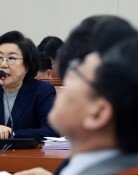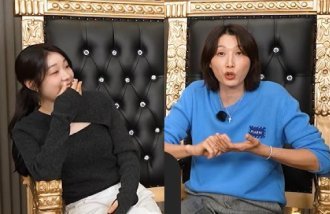Japan Eager to Acquire a Permanent Seat in the U.N. Security Council
Japan Eager to Acquire a Permanent Seat in the U.N. Security Council
Posted September. 21, 2004 22:05,
Next year is the 60th anniversary marking the end of World War II. Will the aggressor and loser in the Second World War, Japan, make its 60-year-old dream of becoming a permanent member of the U.N. Security Council come true? Let us analyze in the form of questions and answers.
Q: What does the U.N. Security Council do?
A: It makes final decisions of military and economic sanctions on invaders or violators of the international law. It consists of five permanent membersthe United States, Britain, France, Russia, and Chinaand 10 non-permanent members who have two-year terms. A matter is passed with the consent of more than nine members. Nonetheless, permanent members enjoy an absolute privilege of veto. The U.N. members increased from 51 nations in 1945 to 191 nations, thus 186 countries except the big five are competing for the 10 non-permanent seats in the Security Council.
Q: What is Japans intention?
A: In terms of budget burden, Japan ranks second after the United States (about 20 percent). Yet, Japan has little voice in international politics as it was charged with the original sin of provoking the Pacific War. Japan is aiming to recover its national prestige in a stroke, for matching the title as the worlds second largest economy by entering into permanent membership of the Security Council.
Q: Why now?
A: Facing the Iraq War, the permanent members are torn into two sides: pro-war U.S. and Britain, and anti-war France, China, and Russia. Sensing a crisis to the U.N.s existence, Kofi Annan, the secretary general of the U.N., established an advisory committee last September and decided to conclude a reform bill of the Security Council by no later than the end this year. The U.N. will carry out a far-sweeping reform of the organization next year, commemorating its 60th anniversary. Japan and Germany attempt to advance together to the Security Council, demanding an enlargement of the permanent seats in line with the U.N.s reform.
Q: What is the public sentiment in Japan?
A: In the past, the discussion on advancing to the Security Council was forbidden due to the worries that it can violate the Pacifist Constitution, which denies Japans sovereign rights to possess its own military and exercise collective self-defense. Nevertheless, nationalist colors, for example the recent tide pushing for a constitutional revision, are becoming stronger, thereby pulling the forbidden issue above water.
Q: What about the process and the chance for materialization?
A: The enlargement of the Security Council is possible only through an amendment of the U.N. Charter. For that, it takes the consent of all the permanent members and more than two-thirds agreement of all the members. It is known that the United States will agree to Japan becoming a permanent member, but China and Russia are reluctant to give up their privileges. Moreover, most Asian nations have experienced Japanese imperialism, thus they disapprove of the idea. In other words, the chance for Japan is opaque for now.
Hun-Joo Cho hanscho@donga.com



![[광화문에서/김준일]단식 마친 장동혁… 중요한 건 단식 그 다음](https://dimg.donga.com/c/138/175/90/1/wps/NEWS/IMAGE/2026/01/23/133221688.1.jpg)
![라면 먹고도 후회 안 하는 7가지 방법[노화설계]](https://dimg.donga.com/c/138/175/90/1/wps/NEWS/IMAGE/2026/01/23/133219600.3.jpg)


